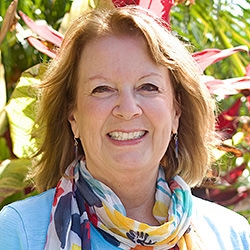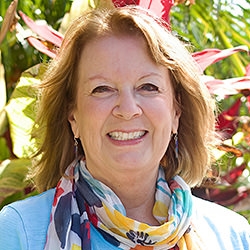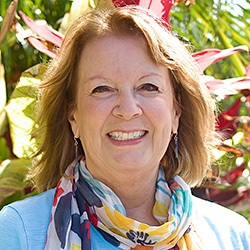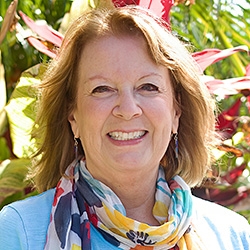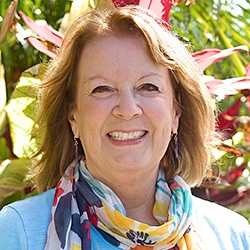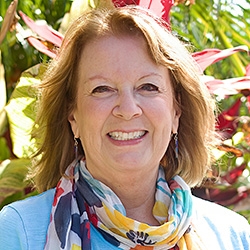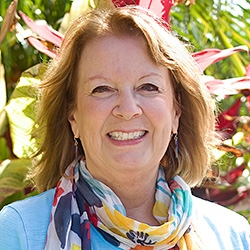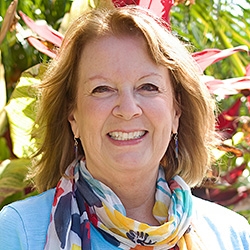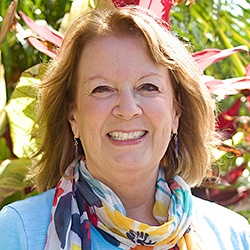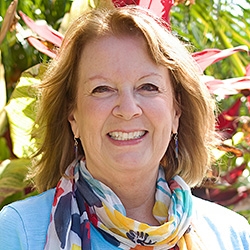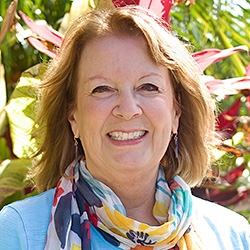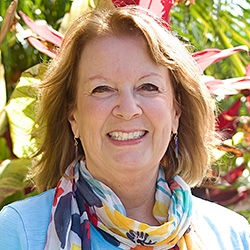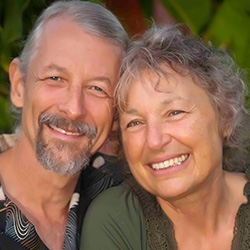

Search Results: feelings
-
That is my mantra this year. It came to me when I was headed somewhere to do something that I had wanted to do, and yet I was feeling annoyed about it because traffic was heavy and overwhelming. I then gave myself a few moments of self-empathy where I connected to the deeper needs that were propelling me to do the thing in the first place. In an instant, my annoyance and looming resentment slipped away and I felt happy and relaxed.
-
October always makes me think about Marshall Rosenberg, the founder of Nonviolent Communication. He was born October 6, 1934. If he were still alive today (he died February 7, 2015), he would be 89 years old!
-
When we take a leap in life and put our hearts out into the world in new or bigger ways—sharing a song, dance, or poem, writing a book, competing at a sporting event, giving a speech, and so on—there is greater potential for aliveness but also for shame and pain
-
Trainer Tip: Notice an opportunity today to use honesty as a means to connect with someone else. Consider what type of honesty might stimulate pain in others.
-
Trainer Tip: Our inner critic judges ourselves and other people; and it is the most likely to get scared when we begin to make a change. It holds wisdom for us if we are willing to listen. When we acknowledge our inner critic and empathize with its need, we gain insights into ourselves and we clear the way for resolution.
-
Trainer Tip: When someone acts in baffling ways we can either wonder about what’s going on with the other person, create our own stories about it (blame, resent, make assumptions), or inform ourselves by asking. This is an opportunity to learn something new.
-
Trainer Tip: When we acknowledge our met needs, rather than labeling the other person as good or bad, we achieve a clarity of mind that deepens our connection to ourselves and other people.
-
Trainer tip: If you have a goal, want to be a "success", or want to do "your best', define what that would look like, and how much. Identify one goal and one thing you can do today to achieve that goal and do it.
-
- Move beyond anger, blame and judgment…
- Make sense of the baffling or offensive people in your life…
- Deepen your compassion for yourself and others… and
- Transform your old thought and speaking patterns into new ones that inspire harmony and fun!
-
Trainer Tip: Overwhelmed with all that you want to do? If so, what are you working to change? Is it a behavior or a consciousness? Where were you with this issue when you first decided to create change? And now where are you? Celebrating your progress can encourage you to keep trying. You wouldn’t expect to jump on a treadmill and jog three miles the first time. Don't have the same expectations for your emotional fitness either!
-
The regeneration movement employs practices for healing our planet from damage, and boosting Earth sustainability. Environmental and social degradation is deeply connected -- as it comes from the same extractive, exploitive mindset of economic and related systems. Connecting with universal consciousness and needs underlying conflicts, we connect with commonality of all planetary life. This helps tap new abilities for working together. This can contain power to regenerate and heal ourselves and Earth.
-
Trainer Tip: In an efficient group process, clarity is key. Try to only say things if you are clear what you want back from the group. Then ask for what you want so people don’t have to figure it out for you. If someone says something and you’re not sure what he wants back from the group, anyone can assist by saying this: “I’m confused about what you would like from us. Would you help us clarify what kind of a response you’re looking for?”
-
Trainer Tip: It's important to design requests to fit specific needs. Otherwise people may do exactly what you ask and still, your needs may not get met. Before you make a request of someone, notice if the strategy you are considering is likely to meet your needs. If not, consider making a different request that may be more satisfying to you.
-
Trainer Tip: Next time someone asks how you're doing, you can check in with yourself and offer an honest answer. It doesn't need to be 15-minute response. You could say, "I’m feeling tired and overwhelmed by this project. I’m sure it'll work out. I’m just worried about it now. How are you?” If you're ready to do that, then you can be honest with yourself. Doing this can help you be present to how you are, and hold your experience as a gift to self and others.
-
I’ve been part of a fitness group here in California for the past 1.5 years. It’s called Boot Camp, and I have no idea why! Anyway, most people in the class are 25-30 years younger than I am and have been part of this group for several years. I don’t lift weights as heavy as theirs and I can’t always keep up with them, but I had felt confident that I was holding my own (except when jogging, which is the one place where I consistently lag far behind them). I found a way to be okay with this, to enjoy working out with them, without thinking I should be as strong or skilled as they are.
-
- Reclaim the lost voices of your ancestors
- Understand the impact of collective trauma on your family line
- Open yourself up to have more warmth for yourself and your children
- Restore the flow of love and energy from past generations
-
In relationships, the desire for space can conflict with the need for intimacy. This conflict arises from different strategies to meet similar needs. By identifying specific needs behind the request for space and understanding the other person’s needs for closeness, both of you can negotiate and collaborate. Repeated conflicts may indicate the need for personal healing, which you’ll need to address individually.
-
Iris Bawidamann explains how needs, like appreciation, can easily turn into demands or self-blame when approached from a place of lack or expectation. This practice is based on the work of Living Compassion, shared by Robert Gonzales, focusing on the beauty of needs and the living energy of needs
-
Anger and resentment can signal unmet needs. Through mourning those needs and practicing self-empathy, we may let go of blame, embrace reality, and reclaim responsibility for fulfilling our own needs. This process may lead to emotional transformation through conscious reflection, and a new outlook.
-
Jim and Jori offer practical tools to help us develop patience through a process they call WAIT: Wake up, Accept, Insight, Take a step.

Quick Links
Subscription Preferences
Stay In Touch!
Looking for ways to keep up with NVC Academy news, get special offers, free resources, or words of inspiration? Here are five ways to stay engaged:

